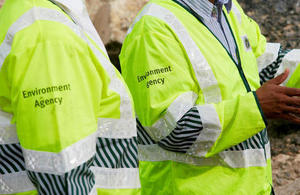TRA recommendation on welded tubes and pipes measure is upheld
The government has agreed with the TRA’s recommendation on the UK trade remedy measure on welded tubes and pipes.
On Monday 9 August, the TRA published its recommendation on the UK’s trade remedy measure on imports of welded tubes and pipes from China, Belarus and Russia. This anti-dumping measure was inherited from the EU system and the TRA is tasked with reviewing all the EU measures which have been transitioned to assess whether they are still needed.
The TRA is recommending that the UK continue to apply the anti-dumping duties to imports from China and Belarus but not to imports from Russia. The TRA also recommended that the scope of the measure be changed to exclude one of the four types of product covered by the measure, as it’s not manufactured within the UK. The Secretary of State for International Trade has upheld the TRA’s recommendation, which will now take effect.
Reviewing the measure on imports of welded tubes and pipes
The TRA assessed whether the trade remedy measure, which places duties on imports of welded tubes and pipes from China, Belarus and Russia, is still needed for the UK. This involved gathering data from UK producers and from importers and exporters and analysing it to establish whether these imports are damaging or could damage UK producers by unfairly undercutting their prices. The measure covers welded tubes and pipes of non-alloy steel commonly used for heating and plumbing systems in the construction industry.
The TRA’s analysis found that, if the measures were removed, producers in Belarus and China would be likely to dump these products in the future and cause harm to UK industry, but that Russian producers would not.
The TRA’s initial findings were published in its Statement of Essential Facts in May, giving case parties the opportunity to review the TRA’s conclusions, comment and add further input. A number of parties submitted responses and the TRA’s final report responded to those submissions and provided further clarification where needed.
The TRA’s recommendation means that the tariffs will be kept where they are needed, on imports from Belarus and China, but not where they are not, on imports from Russia, ensuring that users of these products can secure fairly traded supplies at competitive prices but UK producers are not harmed by unfair trade. These measures will be removed for products imported from Russia after 30 January 2021 (30 days after the date the measure transitioned from the EU into UK law, as specified by the legislation).
The TRA’s Chairman Simon Walker explained:
The TRA’s review of this measure and the evidence we gathered and analysed have enabled us to recommend an outcome which keeps the measures where they are needed and removes them where they are not, ensuring users of these products can secure fairly-traded supplies at competitive prices but UK producers are not harmed by unfair trade.
Background
About the TRA and trade remedies
-
The Trade Remedies Authority (TRA) is the UK body that investigates whether trade remedy measures are needed to counter unfair import practices and unforeseen surges of imports.
-
The TRA is an arm’s length body of the Department of International Trade (DIT) and launched on 1 June 2021. Before its launch, staff operated as the Trade Remedies Investigations Directorate (TRID) of DIT.
-
Anti-dumping measures are one of the three types of trade remedies allowed by the World Trade Organisation (WTO). These measures place duties on products when they are dumped – unfairly imported into a country at prices below what they would be sold for in the country where they are made. The other two measures are countervailing measures which counter unfair subsidies on imported goods and safeguard measures which address unforeseen surges of imports.
-
When the UK left the EU, it transitioned across 43 trade remedy measures which were of interest to UK industries into UK law. The TRA was then required to carry out a review of each measure. This is because the measures were originally put in place based on data from across all the EU member states. If the UK is to keep them, it needs to demonstrate that they are needed to protect against unfair trade practices which are damaging or could damage UK industries.
About the transition review into welded tubes and pipes
The review into welded tubes and pipes was initiated on 10 February 2020. The TRA published its Statement of Essential Facts, an interim report stating its initial findings to give case parties the opportunity to comment, on 14 May 2021.
The review concerned an anti-dumping measure which applies to welded tubes and pipes of iron or non-alloy steel, of circular cross-section and of an external diameter not exceeding 168.3 mm, excluding line pipe of a kind used for oil or gas pipelines, casing and tubing of a kind used in drilling for oil or gas, precision tubes and tubes and pipes with attached fittings suitable for conducting gases or liquids for use in civil aircraft.
